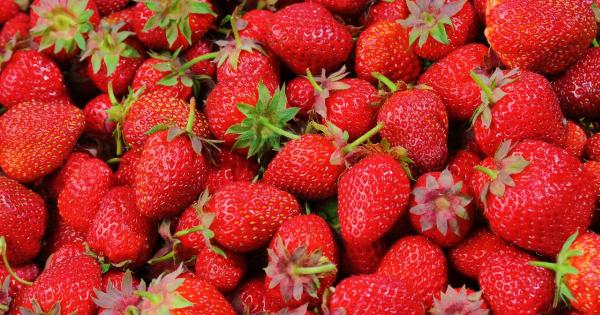Nutrition plays a vital role in the health of both mother and baby. During pregnancy, a woman’s body goes through many changes, and it is important to provide her body with the right nutrients to support the growth and development of the baby.
A healthy diet can improve the chances of a healthy pregnancy and a healthy baby. This article will discuss the importance of nutrition for mother and baby.
The Role of Nutrients During Pregnancy
During pregnancy, a woman’s body requires additional nutrients to meet the needs of the growing baby. These nutrients include:.
- Protein
- Iron
- Calcium
- Folate
- Vitamin A
- Vitamin C
- Vitamin D
- Vitamin E
Protein is essential for the growth and development of the baby’s tissues. Good sources of protein include lean meat, poultry, fish, eggs, beans, and nuts.
Iron is important for the production of red blood cells, which are needed to carry oxygen to the baby. Good sources of iron include meat, fish, poultry, beans, and leafy green vegetables.
Calcium is necessary for the development of strong bones and teeth. Good sources of calcium include milk, cheese, yogurt, and leafy green vegetables.
Folate is needed to prevent birth defects, such as neural tube defects. Good sources of folate include leafy green vegetables, beans, and fortified cereals.
Vitamin A is important for the development of the eyes, skin, and immune system. Good sources of vitamin A include sweet potatoes, carrots, and spinach.
Vitamin C is essential for the growth and repair of tissues in the body. Good sources of vitamin C include citrus fruits, strawberries, and broccoli.
Vitamin D is needed for the absorption of calcium and the development of strong bones. Good sources of vitamin D include sunlight, fatty fish, and fortified milk.
Vitamin E is important for the development of the brain and nervous system. Good sources of vitamin E include nuts, seeds, and leafy green vegetables.
The Importance of a Balanced Diet
A balanced diet is essential for the health of both mother and baby. Eating a variety of foods from all food groups can help provide the necessary nutrients for a healthy pregnancy.
The following food groups should be included in a pregnant woman’s diet:.
- Fruits and vegetables
- Whole grains
- Lean proteins
- Dairy products
- Healthy fats
Fruits and vegetables are excellent sources of vitamins, minerals, and fiber. Whole grains provide energy and fiber. Lean proteins provide essential amino acids for the growth and development of the baby.
Dairy products provide calcium and vitamin D for strong bones. Healthy fats are important for the development of the baby’s brain and nervous system. Good sources of healthy fats include fish, nuts, and seeds.
The Importance of Hydration
Hydration is also important during pregnancy. Water is necessary to support the baby’s growth and development and to maintain healthy blood volume. Pregnant women should aim to drink at least eight glasses of water per day.
Other options for hydration include herbal tea and fruit juice, but these should be consumed in moderation due to the potential for added sugar and caffeine.
The Role of Supplements
Prenatal supplements are often recommended to ensure that pregnant women are meeting their daily nutritional requirements. Prenatal supplements typically contain folic acid, iron, and other essential vitamins and minerals.
However, these supplements should be taken in addition to a healthy diet, not as a replacement for it.
It is important to talk to a healthcare provider before starting any supplement regimen, as some supplements may not be appropriate for all individuals.
The Importance of Avoiding Certain Foods
During pregnancy, it is important to avoid certain foods that can increase the risk of foodborne illness or harm the developing baby. These include:.
- Raw or undercooked meats
- Raw or undercooked eggs
- Unpasteurized dairy products
- Raw or undercooked fish and shellfish
- Processed meats
- Alcohol
- Caffeine
- Unwashed fruits and vegetables
Conclusion
Nutrition plays a crucial role in the health of both mother and baby during pregnancy.
A healthy diet that includes a variety of foods from all food groups, along with sufficient hydration and prenatal supplements when necessary, can promote a healthy pregnancy and a healthy baby.





























